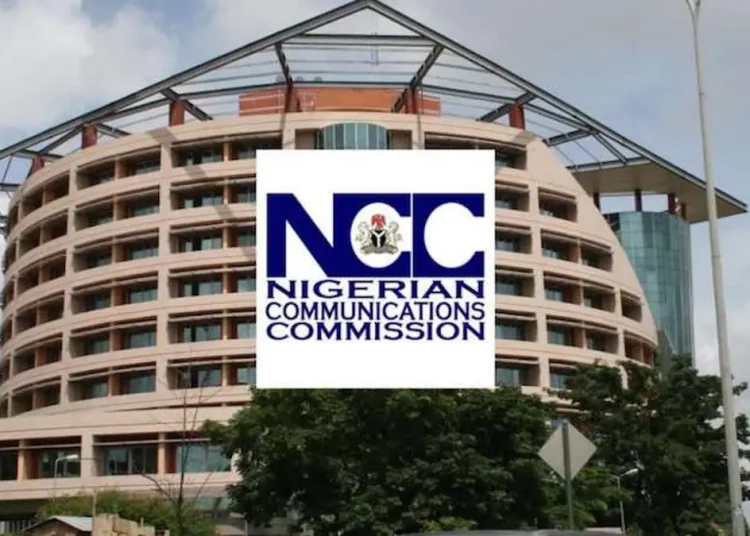In an increasingly digital world where social media has become a staple of daily life, Nigerian experts are raising urgent alarms about its dark underside, especially its addictive design and far-reaching consequences on mental health, education, and cultural values.
With over 5.24 billion active users globally, representing 63.9 per cent of the world’s population, social media platforms are wielding an unprecedented level of influence.
Nigeria, with its population of over 200 million, contributes significantly to this figure. The country has more than 51 million active Facebook users, and millions more are actively engaged on Instagram, Messenger, and TikTok. However, experts say the staggering level of digital engagement comes at a steep price.
Head of Innovation and Digital Inclusion. National Information Technology Development Agency (NITDA), southwest Zonal office, Dr. Falilat Jimoh, while speaking with LEADERSHIP, emphasised the agency’s mission to enhance digital safety across Nigeria.
“We are pushing for digital literacy across all verticals of society,” she stated, underlining the critical need for parents and educators to guide children’s online activities.
Highlighting parallels between teaching road safety and online safety, Jimoh explained, “You wouldn’t send your child out without teaching them road safety, yet we hand them devices without adequate guidance on digital safety.” She urged parents to adopt tools like parental controls, which allow them to monitor and regulate their children’s online interactions.
Jimoh called on more organisations to replicate such programmes to educate Nigerians on digital safety, emphasising that protecting children requires the involvement of governments, tech companies, educators, and parents alike.
The 2024 Nigerian Teen Cyber Awareness Report underscored the rise of sexting among Nigerian teens, facilitated by coded phrases such as “WTTP” (Want To Trade Pictures) and “NIFOC” (Naked In Front Of Camera). Such behavior has led to cases of extortion, cyberbullying, and mental health crises, including teen suicides.
In the same vein, the programme manager at Data Science Nigeria (DSN), Michael Adeniran called for collective action to combat these issues, citing the mental toll of cyberbullying on public figures. “Parents must be actively involved in their children’s digital lives,” Adeniran urged, stressing the need for open communication, digital literacy, and robust use of parental control tools.
TikTok’s parental control features were spotlighted as a leading example of how technology can aid in safeguarding children.
Adeniran explained that parents can manage screen time, restrict inappropriate content, and oversee interactions. Sharing his personal experience, he said, “I set up a tablet for my two-year-old where every action—app downloads, YouTube Kids access—required my password.”
Adeniran applauded TikTok’s proactive approach. He also encouraged parents to educate children about building a positive digital footprint, warning, “What we post online today could affect opportunities tomorrow. Imagine your child being rejected by Harvard because of an inappropriate post from years ago.”
A leading Innovation and Technology policy advisor, Jide Awe warned that the alluring nature of social media is not accidental. “These platforms are engineered for engagement, trapping users in an endless scroll. It’s not just about technology; it’s a public health crisis, a mental health challenge of the digital age. The tech and health sectors must collaborate to find solutions,” Awe explained.
He emphasised the complex web fueling this addiction: the manipulation of human psychology, artificial intelligence-driven content feeds, the prioritization of sensational material, and low digital literacy among users—especially the youth.
According to Awe and other experts, these platforms exploit basic human vulnerabilities. “Social media develops a behavioural profile on every user. They know what keeps us coming back. It’s as addictive as sugar or snacks. The algorithms are built to reward impulsive behavior and distract users constantly,” said tech researcher Tony Dearaujo.
Meanwhile, Nigeria’s federal government has made some strides in this regard. Agencies such as; the National Security Adviser’s office, NITDA, NCC, EFCC, and the Nigerian Computer Emergency Response Team (ngCERT) have outlined strategic initiatives in the National Cybersecurity Strategy. This includes countermeasures through legislation, policy frameworks, and international collaboration to protect children from online exploitation.
The Nigerian Cybercrime (Prohibition, Prevention, etc.) Act of 2015 also provides a legal backbone, addressing child pornography (Section 23), cyberstalking (Section 24), cybersquatting (Section 25), and cyberterrorism (Section 18), among other offenses.
However, implementation remains a challenge.
A recent NCC study titled “Child Online Protection: Young Children and Digital Technology – A Survey across Nigeria” recommended increased political will and financial investment to enforce these protections. It called for better education of parents, children, and educators about their roles and responsibilities under the law.
“There’s an urgent need for Nigeria to adopt a Children’s Online Privacy Protection Law,” the report emphasised. Such a law would safeguard the personal data of minors on websites and digital platforms, requiring companies to obtain parental consent before collecting such data.
As digital spaces evolve, experts agree that the country’s commitment to child protection, digital literacy, and responsible platform governance, must evolve as well.
“The future is digital. But unless we act now, that future could come at the expense of our children’s wellbeing, culture, and mental health,” they stated.





